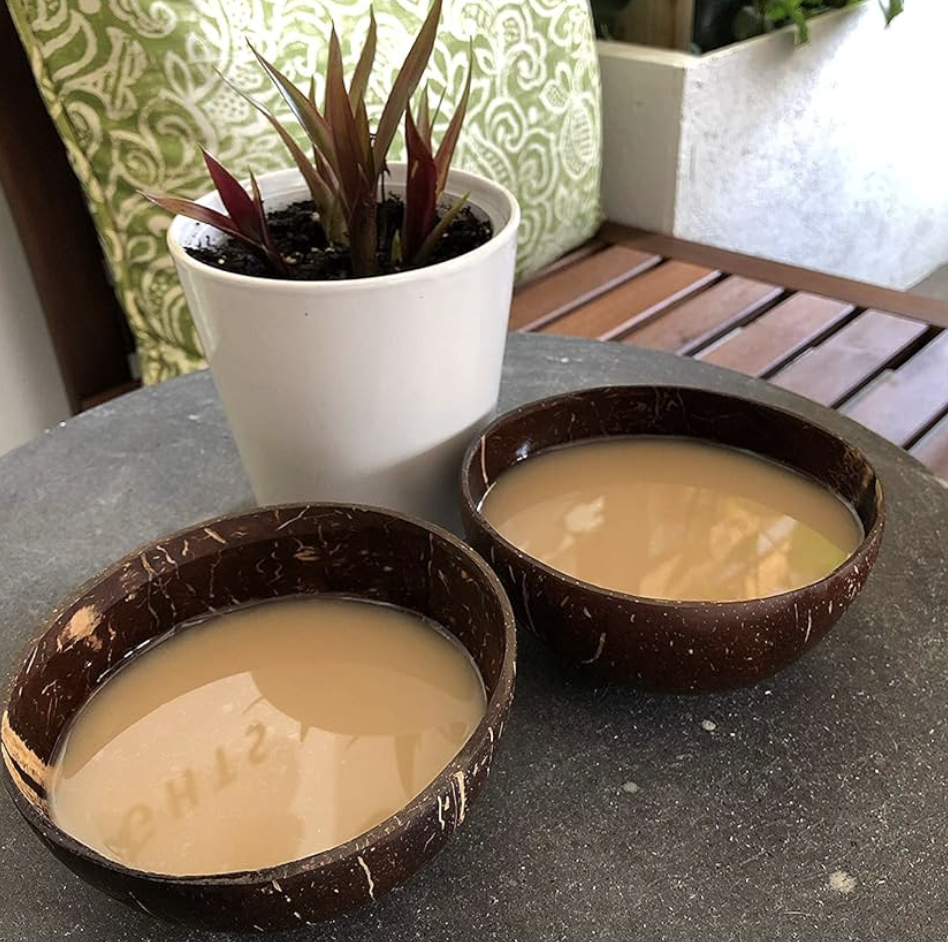
Best time is the time you spend sipping Kava with new friends
In today’s fast-paced world, stress and tension are part of everyday life. Many people have long relied on alcohol as their go-to escape at the end of a hard day or the centerpiece of social gatherings. But more and more people are beginning to question whether alcohol is truly serving them well. From the hangovers to the toll on physical and mental health, alcohol can often make life harder instead of easier.
This is where the sober-curious movement comes in. Rather than completely cutting themselves off from fun or socializing, sober-curious individuals are simply choosing to explore alternatives. They want ways to relax, connect, and enjoy life without relying on alcohol. One of the most popular and effective alternatives today is kava — a traditional drink made from the root of the kava plant, long celebrated in South Pacific cultures for its calming and uplifting effects.
For anyone who wants balance, relaxation, and social connection without the downsides of drinking, kava offers a natural solution.
Why People Are Looking Beyond Alcohol
Alcohol has become so deeply tied to modern social life that it’s often assumed to be a necessity. Happy hours, dinner parties, holidays — alcohol shows up everywhere. But while it may provide a short-term sense of ease, the long-term effects are hard to ignore. Many people experience:
- Poor sleep and sluggish mornings
- Reduced focus and productivity
- Increased anxiety or mood swings
- Health risks with continued use
The problem isn’t that people don’t want to relax or connect — it’s that alcohol is often the only tool society has handed them. But it doesn’t have to be that way.
The Rise of the Sober-Curious Lifestyle
The term “sober-curious” has gained traction in recent years as more people experiment with drinking less or even giving up alcohol altogether. Unlike traditional abstinence-based approaches, being sober-curious is about exploration rather than restriction.
People in this movement are asking:
- What if I could enjoy gatherings without alcohol?
- What if I could feel calm without paying the price the next morning?
- What if there was something natural that helped me relax while staying clear-headed?
These questions are leading many to kava.
What Is Kava?
Kava, also known as Piper methysticum, is a root plant native to the South Pacific. For centuries, it has been prepared as a beverage for ceremonies, community gatherings, and relaxation. The drink is traditionally made by kneading the root in water, producing an earthy-tasting beverage known for its ability to promote calm, relaxation, and sociability.
Unlike alcohol, kava doesn’t impair judgment or motor skills. Instead, it gently soothes the body and mind, often described as creating a natural, balanced buzz. People who drink kava often report feelings of:
- Relaxation without sedation
- Calm focus
- Enhanced social connection
- Reduced stress and anxiety
This makes kava especially appealing to those who want the benefits of unwinding and connecting with others, without the negatives tied to alcohol.
Why Kava Is the Perfect Alcohol Alternative
There are several reasons kava is gaining popularity as a healthier, more sustainable option for people seeking balance and connection:
- No Hangovers
Kava offers relaxation without the dreaded morning-after headaches, grogginess, or regret. You can enjoy your evening and still wake up ready for the day ahead. - Promotes Social Connection
Kava has long been used in Pacific Island cultures as a communal drink. It’s designed to bring people together, fostering conversation and connection — just like alcohol, but without the risks. - Supports Mental Wellness
Many people use kava as a way to ease stress or anxiety naturally. This makes it a practical option for professionals, socializers, and wellness seekers alike. - Non-Intoxicating
Unlike alcohol, kava won’t cloud your judgment. You can feel calm, present, and engaged without losing clarity.
Practical Ways to Incorporate Kava
If you’re curious about trying kava as an alternative to alcohol, there are simple ways to integrate it into your lifestyle:
- At Social Gatherings: Bring kava instead of wine or beer. It creates a relaxed, welcoming atmosphere and often sparks conversations about mindful choices.
- For Stress Relief: Replace your after-work drink with a cup of kava. It can become a nightly ritual that helps transition from a busy day to a calmer evening.
- Wellness Routines: Pair kava with meditation, yoga, or journaling for deeper focus and relaxation.
- Exploring Variety: Noble kava varieties are known for their balanced effects. Instant kava and micronized kava powders make preparation quick and easy.
By making these small swaps, you can reduce your reliance on alcohol while still enjoying the experience of winding down.
Common Questions About Kava
Is kava safe?
Yes, when consumed responsibly, kava is safe for most people. It’s important to use noble kava varieties, which are traditionally recognized for safety and effectiveness.
Will kava get me “high”?
Kava doesn’t create intoxication in the same way alcohol or drugs do. Instead, it offers a mild, relaxing buzz that keeps you calm and clear-headed.
Does kava taste good?
Kava has an earthy taste, which may be unfamiliar at first. Many people grow to enjoy it, especially when it’s part of a calming routine. Instant or flavored options can make it more approachable.
Redefining Relaxation
At its core, kava is more than just a drink — it’s a way to rethink how we handle stress, relaxation, and connection. For the sober-curious community, it’s proof that you don’t need alcohol to enjoy life, connect with friends, or find your calm.
The message is simple: kava is a natural, time-tested alternative to alcohol. It offers relaxation without impairment, connection without hangovers, and balance without compromise.
For those ready to explore what life feels like without alcohol at the center, kava is waiting.
